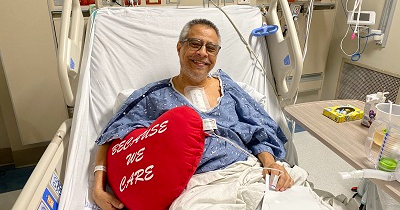Health Dept.: Beware Of Mosquito-Borne Chikungunya Fever
MIAMI (CBSMiami) – The season for mosquitoes will be in full force within a matter of weeks. Ahead of that, the Florida Department of Health is advising residents and visitors to be aware of chikungunya fever.
The viral mosquito-borne disease has made its way to the Caribbean countries from Africa, Asia and islands in the Indian Ocean and Western Pacific.
People who travel to those countries could carry the virus back to the United States and infect local mosquito populations.
Mosquitoes can transmit different viruses including chikungunya, West Nile and Eastern equine encephalomyelitis. Chikungunya, like dengue, can be transmitted from a person who is infected to an Aedes mosquito. That mosquito can bite another person and pass along the disease.
Aedes mosquitoes typically bite during the day and can lay eggs in very small water containers.
The Department has received three reports of imported cases of chikungunya fever to Florida from travelers who recently traveled to the Caribbean. One case is a 30-year-old woman in Miami-Dade County, one case is a 29-year-old woman from Broward County, and the other is a 44-year-old woman in Hillsborough County.
Symptoms of chikungunya usually begin 3-7 days after being bitten by an infected mosquito and can include fever and severe joint pains often in hands and feet.
Additional symptoms include headache, muscle pain, joint swelling or rash.
It is not usually a deadly disease, but does result in persistent joint pain.
No vaccine is available.
A person infected with chikungunya should stay indoors as much as possible until symptoms subside to prevent further transmission.
To minimize exposure to mosquitoes, drain water from garbage cans, house gutters, pool covers, coolers, toys, flower pots or any other containers where sprinkler or rain water has collected and discard any items that may collect water.
Clean bird baths and pet water bowls twice a week. If you must be outside when mosquitoes are active, cover up.
Wear shoes, socks, long pants, and long sleeves. You may also apply mosquito repellent to bare skin and clothing. Always use repellents according to the label.
Repellents with DEET, picaridin, oil of lemon eucalyptus, and IR3535 are effective.
Use mosquito netting to protect children younger than 2 months.
RELATED CONTENT:



